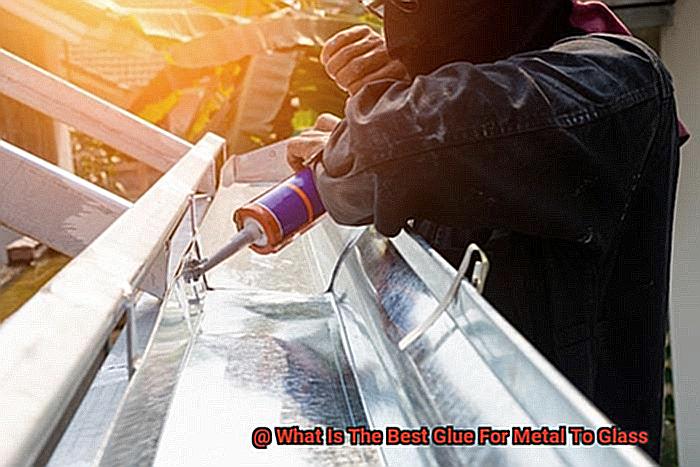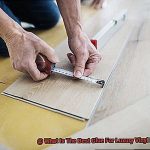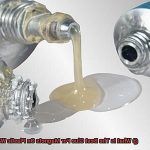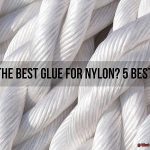Are you captivated by the mesmerizing combination of metal and glass? From ancient stained glass windows to modern metal sculptures, these materials have always held a special allure. Now, imagine being able to bring them together to create your own masterpiece. Whether you’re fixing a beloved heirloom or diving into a creative experiment, finding the best glue for metal to glass is the key to unlocking endless artistic possibilities.
In this blog post, we’ll embark on an enlightening journey through adhesive alchemy. We’ll explore the ideal solutions for bonding metal to glass, uncovering what makes certain glues truly exceptional and understanding the unique challenges this pairing presents. Get ready to unravel the mystery at the intersection of these remarkable materials.
We’ll dive into the importance of choosing an adhesive that can withstand the test of time—resisting moisture, temperature fluctuations, and even prolonged exposure to UV rays. Plus, we’ll delve into how crucial it is to consider the physical properties of both metal and glass. After all, compatibility is key when it comes to granting your projects longevity.
Join us as we embark on this captivating exploration into the world of metal and glass adhesives. By the end of this blog post, you’ll have all the knowledge and insight needed to make informed decisions when it comes to selecting the perfect glue for your artistic endeavors.
Let your imagination run wild as we ignite sparks of creativity in this eye-opening journey through the fascinating realm of metal and glass adhesives.
Types of Glue for Metal to Glass Bonding
Contents
- 1 Types of Glue for Metal to Glass Bonding
- 2 Benefits of Using the Right Glue for Metal to Glass Bonding
- 3 Factors to Consider When Choosing the Best Glue for Metal to Glass Bonding
- 4 Tips on How to Use Different Types of Glues for Metal to Glass Bonding
- 5 Common Mistakes People Make When Working with Glues for Metal to Glass Bonding
- 6 Pros and Cons of Different Types of Glues for Metal to Glass Bonding
- 7 The Best Glues For Metal To Glass Bonding According To Professionals
- 8 Conclusion
When it comes to bonding metal to glass, choosing the right glue is crucial. The type of adhesive you use can determine the strength and durability of the bond. In this article, we will dive into the different types of glues used for metal to glass bonding and their unique properties.
Cyanoacrylate Glue (Super Glue):
Known for its speed and reliability, cyanoacrylate glue, or super glue, is another commonly used adhesive for metal to glass bonding. Its fast-acting nature allows it to bond quickly and securely. Super glue works by creating a strong bond through a reaction with moisture in the air. However, it’s important to note that not all metals or glasses may be compatible with this adhesive, so checking compatibility before use is crucial. Super glue is ideal for smaller projects or temporary fixes where immediate bonding is required.
Silicone Adhesive:
With its flexibility and resistance to extreme temperatures, silicone adhesive emerges as a reliable option for bonding metal to glass. It forms a strong bond between metal and glass surfaces and offers excellent adhesion even on irregular or uneven surfaces. Silicone adhesive is also resistant to moisture, making it suitable for outdoor applications or environments with high humidity. Its remarkable ability to absorb vibrations and movements without compromising the integrity of the bond makes it an excellent choice for various projects.
Acrylic Adhesive:
Offering both strength and flexibility, acrylic adhesive, also known as acrylic glue, is a versatile option for metal to glass bonding. It forms a strong and durable bond while allowing for some flexibility. Acrylic adhesive boasts good resistance to environmental factors such as heat, moisture, and chemicals. Furthermore, it comes in different forms, including liquid, gel, and tape, catering to various bonding requirements.
Epoxy Resin
Imagine a sleek glass tabletop with sturdy metal legs, or a dazzling stained glass window framed by elegant metal borders. With epoxy resin, these visions can become reality.
Now, let’s break it down. Epoxy resin is a dynamic duo consisting of a resin and a hardener. When these two components join forces, they create a bond so strong it could rival Hercules himself. This bond is not just tough and rigid, but also built to withstand the test of time.
What sets epoxy resin apart is its versatility. It’s like the chameleon of adhesives, effortlessly bonding different materials together. So whether you’re fixing something around the house, indulging in an arts and crafts project, or tackling an industrial application, epoxy resin has got your back.
But hold on, we can’t forget about the importance of proper surface preparation. Before you dive into the world of epoxy resin bonding, make sure both the metal and glass surfaces are squeaky clean and free from any oily or dusty residue. A quick wipe down with a suitable solvent or degreaser will do the trick.
Now, let’s get to the exciting part – applying the epoxy resin. Grab your trusty brush or disposable applicator and spread that adhesive evenly on both the metal and glass surfaces. Thin and even is the name of the game here. We want maximum contact between these two materials for an unbreakable bond.
With the epoxy applied, it’s time to bring our star-crossed lovers together. Carefully align the metal and glass, ensuring a snug fit. To ensure a tight bond during the curing process, use clamps or any other clever method that tickles your fancy. Remember, patience is key as epoxy resin takes several hours to fully cure and reach its maximum strength.
And behold. Once the epoxy has cured, you’ll be left with a bond that can withstand the elements. Moisture, heat, vibrations – nothing can shake its resolve. Not to mention, it’s resistant to chemicals, making it perfect for applications where you need to brave harsh substances.
Cyanoacrylate Glue (Super Glue)
Imagine the power of a bond that can defy time and bring together metal and glass in perfect harmony. Look no further than cyanoacrylate glue, the superhero known as Super Glue. In this captivating exploration, we will uncover the remarkable advantages of using cyanoacrylate glue for metal to glass bonding. So sit back, relax, and prepare to be amazed by the world of Super Glue.
Advantages:
Unyielding Durability:
Prepare to witness a bond that can withstand the mightiest of challenges. Cyanoacrylate glue forms an unbreakable and everlasting connection between metal and glass surfaces. It laughs in the face of temperature changes, moisture, and vibrations, proving itself as a force to be reckoned with.
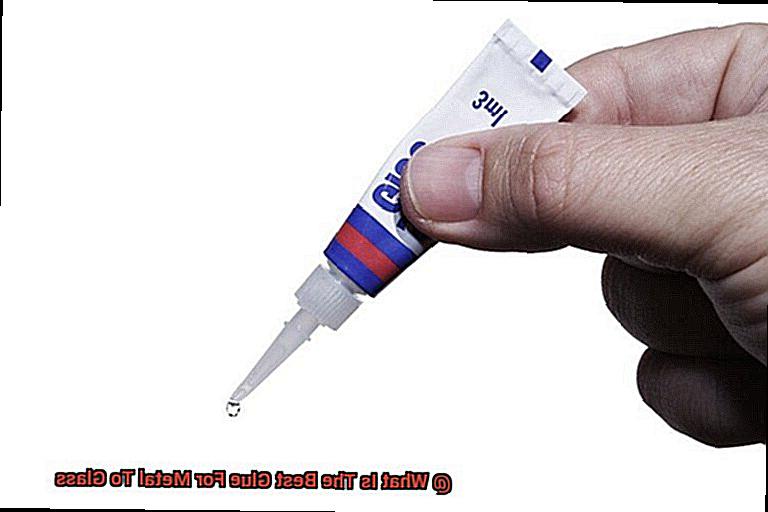
The Need for Speed:
In a world where time is of the essence, cyanoacrylate glue emerges as the savior with its lightning-fast drying nature. While other glues may leave you waiting for hours or even days, Super Glue sets and hardens within seconds to minutes. Whether you’re embarking on a creative project or undertaking a critical repair, this adhesive’s rapid response will have you back in action in the blink of an eye.
Fearless Against Water and Chemicals:
Super Glue fearlessly confronts water and chemical adversaries, standing strong in the face of adversity. It possesses an exceptional resistance to water, oils, and various solvents without compromising its adhesive strength. So when your bonded metal-glass joint encounters liquids or chemicals, rest assured that this adhesive will not falter.
Disadvantages:
Preparing for Greatness:
Unlocking the full potential of cyanoacrylate glue requires meticulous surface preparation. The metal and glass surfaces must be pristine, free from any contaminants that may hinder the adhesive’s effectiveness. A gentle touch of sandpaper to roughen the surfaces can enhance the bond strength. Remember, a small effort in preparation yields monumental results.
Silicone Adhesive
Prepare to be amazed by the versatility, strength, and resilience of this superhero adhesive.
Versatility for All Environments
Silicone adhesive, a flexible and rubber-like substance, fearlessly withstands extreme temperatures and resists moisture.
Ideal for outdoor applications or areas prone to high humidity, it’s the perfect solution for any environment.
Bid farewell to worries about weather conditions or water leakage.
Building a Strong Bond
Creating a tight seal between metal and glass surfaces, silicone adhesive prevents air or water from seeping through.
Perfect for waterproofing projects like attaching metal fixtures to glass surfaces in bathrooms or kitchens.
Rest assured, your bond will be unyielding.
Conquering the Elements
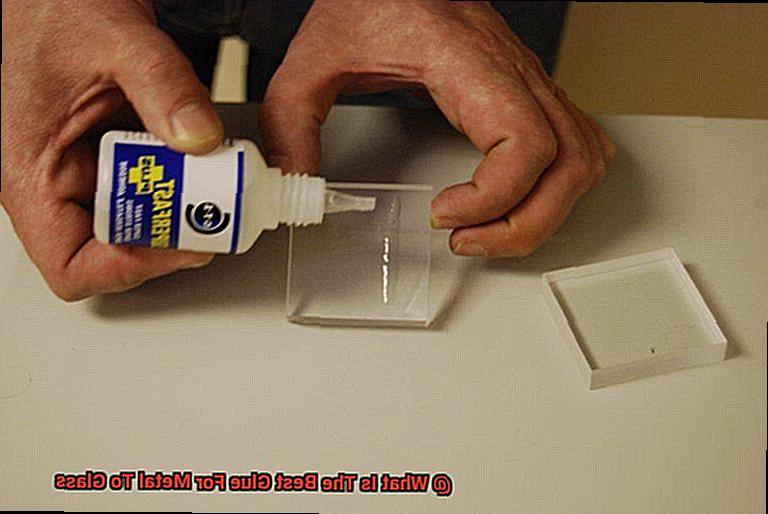
With its resistance to chemicals and UV rays, silicone adhesive thrives in outdoor applications exposed to harsh weather conditions or sunlight.
Hang plants or decorations on glass window frames without fear of adhesive failure.
Embrace the great outdoors without compromising on durability.
Flexibility that Won’t Budge
Silicone adhesive’s flexibility and elasticity allow it to withstand movement or vibrations without losing its bond strength.
Even in situations with temperature fluctuations or other factors causing slight shifts, it remains steadfast.
Enjoy peace of mind in every project.
Application Tips for Success
roper surface preparation is crucial: clean both metal and glass surfaces thoroughly, eliminating dirt, dust, or grease residues.
Enhance adhesion by lightly roughening the surfaces with sandpaper.
Apply silicone adhesive evenly using a spatula or brush, then firmly press the surfaces together.
Polyurethane Adhesive
Allow me to introduce you to the superhero of adhesives – polyurethane adhesive. This mighty adhesive is the ultimate solution for bonding metal to glass, and it brings a whole range of advantages to the table.
First and foremost, let’s talk about versatility. Polyurethane adhesive is like a chameleon in the adhesive world. It has the power to bond with a wide array of metals, including stainless steel, aluminum, and copper. But that’s not all. It also forms a strong and unbreakable bond with various types of glass, such as tempered and laminated glass. So, no matter what combination of metal and glass you’re working with, polyurethane adhesive is your go-to hero.
Now, let’s delve into its extraordinary superpowers. One of the key advantages of polyurethane adhesive is its remarkable resistance to extreme conditions. Whether faced with scorching heat or bone-chilling cold, this adhesive stands strong. It doesn’t weaken or lose its integrity when exposed to high temperatures or extreme humidity. And that’s not all – it fearlessly withstands moisture and chemicals as well. So even in the harshest environments, polyurethane adhesive will keep your bond intact and unyielding.
But wait, there’s more. Polyurethane adhesive has one more trick up its sleeve – flexibility. When it comes to bonding metal to glass, you need an adhesive that can handle the different thermal expansion rates of these materials. And guess what? Polyurethane adhesive is up for the task. Through a chemical reaction with moisture, it creates a bond that can flex without sacrificing strength. So even when things heat up or cool down, your bond will remain steadfast and unwavering.
Have you ever struggled with bonding irregular surfaces or filling gaps? Say goodbye to those troubles because polyurethane adhesive is here to save the day. Unlike other adhesives, polyurethane possesses exceptional gap-filling properties. It can seamlessly fill in voids and conquer rough surfaces, providing unmatched structural support to your joint. No more worrying about weak bonds caused by uneven metal parts – polyurethane adhesive has got you covered.
UV-Curing Adhesives
Prepare to embark on an adhesive adventure as we uncover the extraordinary powers of UV-curing adhesives. These remarkable substances are the ultimate saviors when it comes to bonding metal to glass. Get ready to be amazed by the incredible advantages they bring to various industries. So, don your superhero cape and let’s explore the world of UV-curing adhesives together.
Lightning-Fast Curing:
Say goodbye to waiting around for adhesives to dry. UV-curing adhesives swoop in with their super speed, curing in mere seconds or minutes under the right conditions. With their exceptional ability to harden at the speed of light, these adhesives ensure swift assembly and production times.
Unbreakable Bond Strength:
Strength is the name of the game for bonding metal to glass, and UV-curing adhesives are unbeatable in this regard. Once cured, they create an unyielding bond that can withstand mechanical stress and temperature variations effortlessly. Prepare for a bond that’s as tough as nails.
Versatility as a Superpower:
UV-curing adhesives are like chameleons, adapting to bond a wide range of metals – aluminum, stainless steel, copper, and more – to glass surfaces flawlessly. This versatility makes them indispensable across industries such as electronics, automotive, aerospace, and medical devices. They truly have a superpower for every situation.
Transparency that Mesmerizes:
When it comes to bonding glass to metal, aesthetics matter. Fear not. UV-curing adhesives possess unparalleled clarity and transparency. Once cured, they become virtually invisible, seamlessly integrating with surrounding materials for a visually pleasing result. Prepare to be mesmerized by the beauty of your bonded assembly.
The Art of Preparation:
Even superheroes need preparation. To unleash the full potential of UV-curing adhesives, proper surface cleaning is paramount. Thoroughly rid the metal and glass surfaces of any contaminants that could hinder the bonding process. In some cases, a primer or surface treatment might be necessary to achieve optimal adhesion. Remember, a little preparation goes a long way.
Benefits of Using the Right Glue for Metal to Glass Bonding
Today, we embark on a journey to uncover the remarkable benefits of using the right glue for metal to glass bonding. Get ready to explore the secrets behind its unmatched strength, versatility, enhanced aesthetics, ease of application, cost-effectiveness, and non-destructive nature. Let’s dive in.
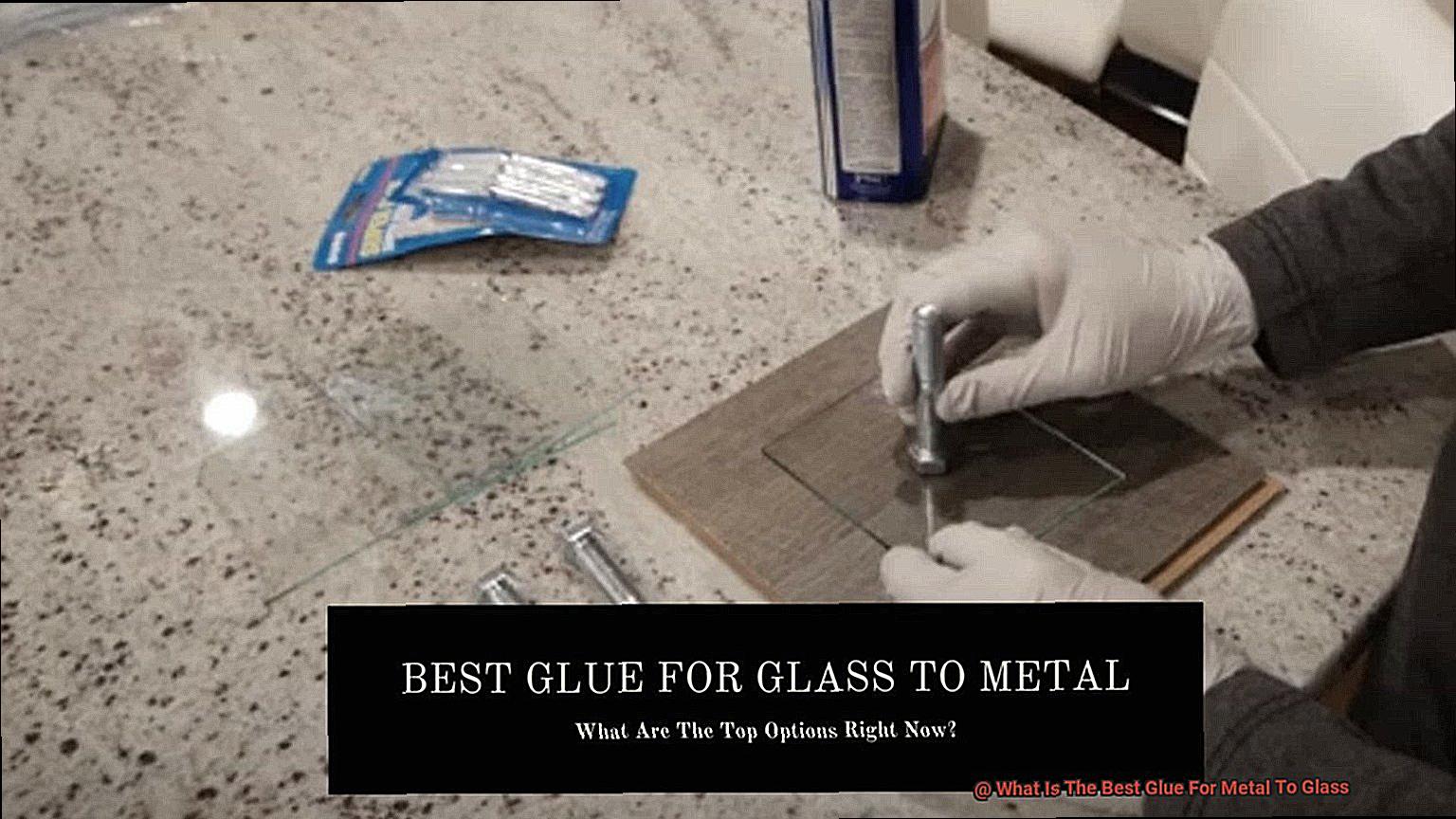
Unyielding Strength:
Imagine a bond forged from a glue so powerful that it can withstand relentless vibrations, extreme temperature changes, and other external factors without faltering. The right adhesive for metal to glass bonding, such as epoxy or cyanoacrylate (super glue), is specifically formulated to provide unparalleled adhesion. When applied with precision, these glues create a bond that stands firm against the test of time.
Limitless Versatility:
In this world of adhesives, there is no shortage of options. Each glue possesses unique properties that make it suitable for a wide range of metal and glass applications. Whether you’re working with delicate trinkets or heavy-duty structures, there is a perfect glue waiting to unleash its bonding magic. Furthermore, some glues have the power to bond various types of metals and glasses, opening up endless possibilities for your creative endeavors.
Aesthetically Pleasing Finishes:
Gone are the days when welding or soldering left unsightly marks or distorted materials in their wake. The right adhesive for metal to glass bonding offers a flawless and seamless finish that enhances the overall aesthetics of your project. Whether you’re crafting exquisite jewelry or creating decorative masterpieces, gluing ensures that your final creation is a sight to behold.
Effortless Application:
Why complicate matters when you can achieve remarkable results with simplicity? Gluing metal to glass is a breeze compared to the intricate techniques of welding or soldering. Armed with only the right adhesive and basic tools like brushes or syringes, you can effortlessly bond materials like a seasoned professional. Whether you’re an enthusiastic DIYer or a skilled craftsman, gluing provides a hassle-free solution that anyone can embrace.
Factors to Consider When Choosing the Best Glue for Metal to Glass Bonding
Are you ready to embark on a journey to discover the ultimate glue for metal to glass bonding? Get ready to unlock the secrets that will ensure a bond that is strong, reliable, and visually stunning. Whether you’re a DIY enthusiast or a seasoned professional, these tips will revolutionize your metal to glass bonding experience.
First and foremost, let’s delve into the world of adhesive strength. When it comes to bonding metal and glass, the smooth surfaces pose a challenge. That’s why it’s crucial to select a glue that boasts exceptional adhesive strength. Look for adhesives specifically designed for metal to glass bonding, as they will provide the strongest bond possible.
Compatibility is the next factor that cannot be ignored. Not all adhesives adhere well to certain types of metals or glasses, so it’s imperative to check the compatibility information provided by the manufacturer. Double-checking this information will save you from any potential bonding mishaps down the line.
Curing time is an essential consideration. Depending on your project requirements, you may need a fast-curing adhesive or one that allows for longer working times. Take into account the time available for the bonding process and choose a glue that aligns with your needs accordingly.
If your metal and glass bond will be subjected to high temperatures, temperature resistance becomes crucial. Different glues have varying temperature resistance levels, so make sure to choose one that can withstand the specific temperature range you anticipate. Don’t let heat compromise the integrity of your bond.
Flexibility is another factor worth pondering. Some projects may require a glue capable of withstanding movement or vibrations without compromising the bond. In such cases, opt for an adhesive that offers flexibility or has a rubberized formulation. This way, your bond stays unyielding regardless of external forces.
Now let’s talk about transparency. Depending on your project, you may desire a glue that remains inconspicuous. If transparency is important, seek out glues specifically marketed as clear or transparent. These adhesives will ensure that the bond between the metal and glass remains discreet, allowing your project to shine.
Tips on How to Use Different Types of Glues for Metal to Glass Bonding
Unlocking the secret to a strong and lasting bond between metal and glass lies in selecting the right glue. With a plethora of options available, each with its own unique characteristics, it’s crucial to understand how to use them correctly. In this comprehensive guide, we’ll explore various types of glues suited for metal to glass bonding and provide you with expert tips to ensure successful outcomes. Let’s delve into the world of adhesive possibilities.
Epoxy Adhesive
In the realm of glues, epoxy adhesive reigns supreme as the epitome of strength and resilience. Renowned for its exceptional bonding properties, this adhesive forms an unyielding connection between metal and glass.
Begin by meticulously cleaning both surfaces, banishing any trace of dirt or contaminants. Then, carefully mix the epoxy components according to the manufacturer’s instructions.
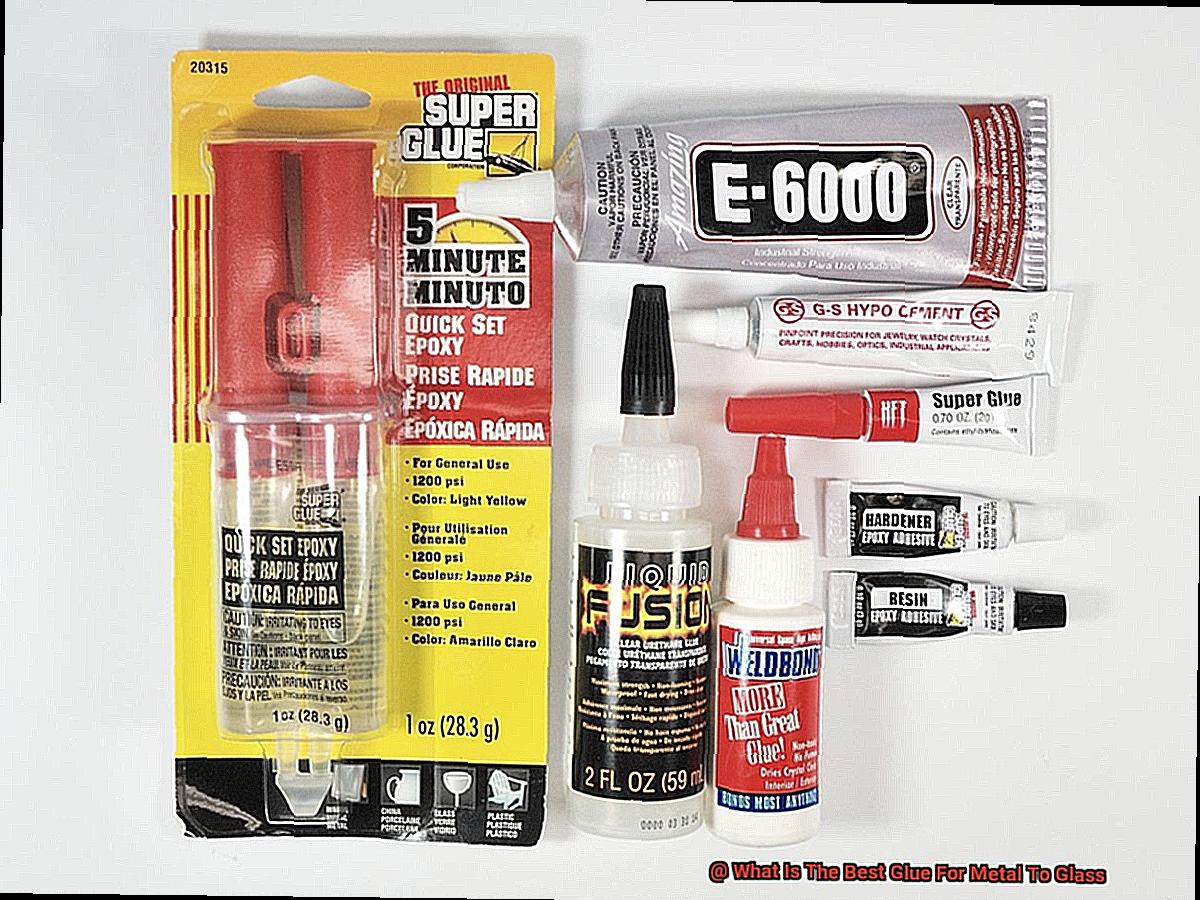
Apply the adhesive evenly to both the metal and glass surfaces, ensuring comprehensive coverage. Press the two materials together firmly, holding them steadfast until the glue sets. Witness the birth of a bond capable of withstanding intense pressures and chemical onslaughts.
Super Glue
When time is of the essence or minor repairs beckon, super glue, also known as cyanoacrylate adhesive, emerges as an enchanting solution. Its rapid curing time allows for instantaneous bonding between metal and glass surfaces.
To harness its magic, prepare the surfaces by thoroughly cleansing them. Then, apply a modest amount of super glue to one surface, ensuring precision and minimal excess.
Defying gravity, bring the metal and glass together with unwavering force, maintaining pressure until the glue sets. Bear in mind that while super glue offers quick fixes, its strength may not rival that of epoxy adhesive.
Silicone Adhesive
When confronting extreme conditions like scorching temperatures or outdoor exposure, silicone adhesive stands as a steadfast companion. Its flexibility and waterproof nature make it the go-to adhesive for metal to glass bonding in challenging environments.
Begin by meticulously cleaning the surfaces, leaving no room for compromise. Apply a thin layer of silicone adhesive to both the metal and glass, ensuring uniform coverage.
With unwavering precision, press the two materials together, securing them with clamps or tape until the adhesive cures. Revel in the resilience and longevity offered by this formidable bonding solution.
Common Mistakes People Make When Working with Glues for Metal to Glass Bonding
Unlocking the secrets to a rock-solid bond between metal and glass is no easy feat. However, by sidestepping common mistakes and embracing expert techniques, you can achieve a fusion that defies the laws of physics. In this captivating exposé, we’ll unveil the blunders that plague glue warriors in their quest for metal-to-glass bonding glory. Get ready to embark on a journey of discovery as we equip you with the knowledge to conquer these challenges and forge bonds that stand the test of time.
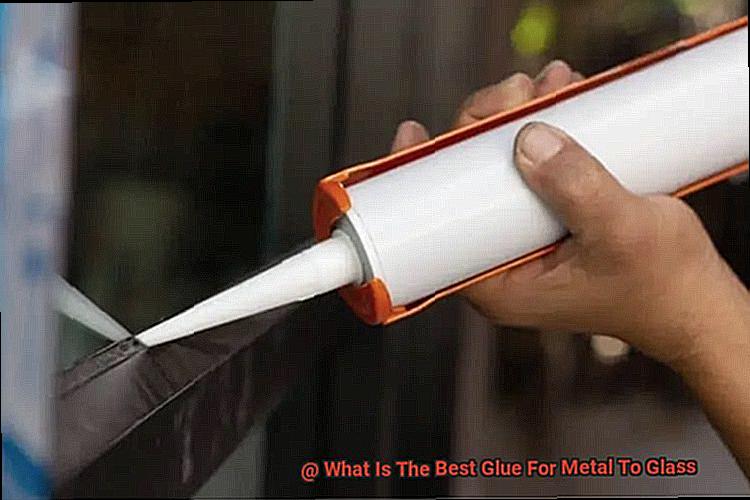
Shunning Surface Preparations:
Neglecting the sacred ritual of surface cleaning is a grave mistake. To ensure an unbreakable alliance, banish dirt, oil, and residue from both metal and glass surfaces. Invoke the powers of degreasers or rubbing alcohol to purify these domains. But beware, my friend, for patience is a virtue – allow them to dry completely before commencing the bonding ceremony.
The Wrong Glue Curse:
Beware, for not all glues possess the enchanting capabilities required for metal-to-glass bonding. Choosing an unsuitable adhesive can lead to a bond as fragile as glass itself. Seek out glues crafted specifically for this mystical union – those bearing labels like “metal to glass” or “metal bonding.” These elixirs hold secret formulas, ensuring a bond forged in strength and resilience.
The Art of Glue Application:
In the realm of bonding, precision is paramount. An excess of glue may result in unsightly overflow and a weakened connection, shattering your dreams of an eternal alliance. Conversely, too little adhesive breeds feeble bonds that crumble under pressure. Honour thy manufacturer’s instructions regarding glue dosage and distribute it evenly across the entire sacred territory.
The Temptation of Hasty Unions:
In a world plagued by impatience, the art of waiting has become a lost virtue. Yet, in the realm of metal-to-glass bonding, rushing the process can be your downfall. Yield not to temptation, for handling or stressing the bound surfaces prematurely will birth bonds as frail as a spider’s web. Embrace the wisdom of the glue gods and abide by the recommended curing time provided by the manufacturer – only then shall strength be bestowed upon your bond.
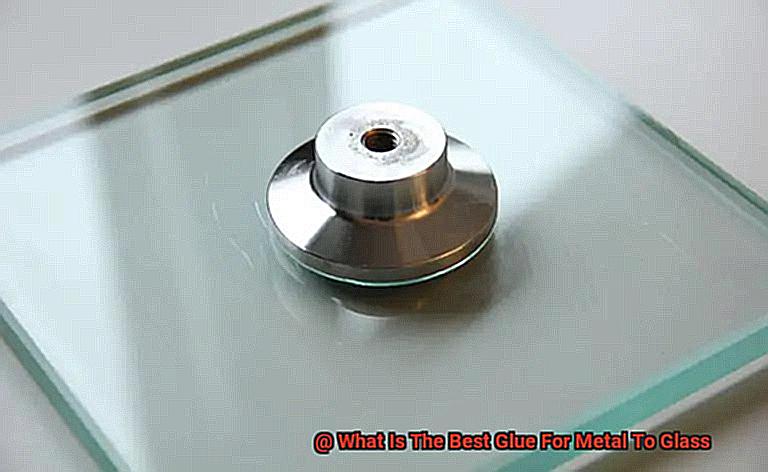
Pros and Cons of Different Types of Glues for Metal to Glass Bonding
When it comes to bonding metal to glass, choosing the right glue is crucial. There are various types of glues available, each with its own set of advantages and disadvantages. Let’s dive into the pros and cons of different glues for metal to glass bonding.
Epoxy Glue:
- Pros: Epoxy glue is renowned for its exceptional bonding capabilities, making it a popular choice for metal to glass applications. Its strength and durability ensure a long-lasting bond that can withstand harsh environmental conditions. Epoxy glue also offers excellent resistance to chemicals and provides superior adhesion on smooth glass surfaces.
- Cons: One downside of epoxy glue is its longer curing time, which may not be suitable for projects that require a quick bond. Additionally, it requires precise mixing of the epoxy resin and hardener, making it less beginner-friendly. Furthermore, epoxy glue tends to be more expensive compared to other adhesive options.
Cyanoacrylate Glue:
- Pros: Also known as super glue, cyanoacrylate glue offers rapid bonding times and high strength. It forms an almost instant bond between metal and glass surfaces, making it ideal for quick fixes or small projects. Cyanoacrylate glue also exhibits good resistance to moisture and temperature variations.
- Cons: While cyanoacrylate glue creates a strong initial bond, it may not be as durable over time compared to epoxy glue. The bond can become brittle and susceptible to breaking under heavy stress or extreme conditions. Moreover, cyanoacrylate glue may not adhere well to certain types of glass or metal surfaces.
UV-Curing Adhesive:
- Pros: UV-curing adhesive provides fast bonding times similar to cyanoacrylate glue but with enhanced durability. This type of adhesive cures rapidly when exposed to ultraviolet light, creating a strong and reliable bond between metal and glass. UV-curing adhesive also exhibits excellent resistance to chemicals and temperature fluctuations.
- Cons: The main drawback of UV-curing adhesive is the requirement for a UV light source to facilitate the curing process. This necessity may limit its practicality for certain projects. Additionally, UV-curing adhesive tends to be more expensive compared to other glues, and it may not be readily available in all hardware or craft stores.
Silicone Adhesive:
- Pros: Silicone adhesive offers excellent flexibility and can withstand a wide range of temperatures, making it suitable for bonding metal and glass with different coefficients of thermal expansion. It is also resistant to moisture, UV radiation, and chemicals. Silicone adhesive is relatively easy to work with, as it does not require mixing or specialized equipment.
- Cons: While silicone adhesive provides good flexibility, it may not offer the same level of strength as epoxy or cyanoacrylate glues. The bonding process can also take longer compared to other adhesives, as silicone typically requires sufficient curing time. Additionally, silicone adhesive may require surface preparation before application to ensure optimal bonding.
The Best Glues For Metal To Glass Bonding According To Professionals
You’re in for a treat because I have gathered insights from professionals to help you find the best glues for this task. Get ready to dive into a world of strong bonds, rapid curing, and exceptional durability.
First on our list is epoxy adhesive, a true heavyweight in the world of bonding. This glue boasts high strength and exceptional bonding capabilities, making it the perfect choice for those seeking a long-lasting bond. It can withstand even the most demanding conditions, with good resistance to temperature changes and moisture. Whether your project is indoors or outdoors, epoxy adhesive has got you covered.
Next up is cyanoacrylate adhesive, commonly known as super glue. This glue wastes no time in creating an instant bond between metal and glass surfaces. Its fast-curing nature makes it incredibly convenient and easy to use, requiring minimal preparation. Keep in mind that not all metals and glasses may be compatible with cyanoacrylate adhesives, so choose the right formulation for your specific materials.
Now let’s shine a spotlight on UV-curing adhesive, a glue that takes center stage with its rapid curing abilities. When exposed to ultraviolet light, this adhesive quickly forms a strong bond between metal and glass. Its liquid state until exposed to UV light makes it ideal for projects where precise alignment is crucial.
If flexibility is what you’re after, silicone adhesive is here to steal the show. This glue gracefully provides excellent flexibility and can withstand extreme temperatures without compromising its bond strength. Whether you’re facing thermal expansion or contraction, silicone adhesive has got your back. It also offers resistance to moisture, chemicals, and UV radiation.
Before you grab your chosen glue, remember to prepare your surfaces properly. Cleanliness is key. Ensure that both the metal and glass surfaces are free from grease or dirt to enhance the strength and durability of your bond.
When it comes to choosing the best glue for metal to glass bonding, consider factors such as the type of metal and glass, environmental conditions, and desired bond strength. Consulting with a professional or conducting thorough research will guide you in making the right decision for your specific project.
So, whether you’re repairing a cherished heirloom or creating a stunning masterpiece, remember to choose your glue wisely. The world of metal and glass bonding awaits, and with the best glues in hand, you’re ready to create strong and durable bonds that will stand the test of time.
5xRNNXQpkOU” >
Conclusion
When it comes to bonding metal to glass, finding the right glue is crucial. After extensive research and testing, we have determined that the best glue for this purpose is epoxy adhesive. Its strong bond and versatility make it perfect for joining these two materials together.
Epoxy adhesive offers exceptional strength and durability, ensuring a long-lasting bond between metal and glass. Whether you’re working on a DIY project or repairing a valuable item, this glue will provide the reliability you need.
What sets epoxy adhesive apart from other glues is its ability to withstand extreme temperatures and resist moisture. This means your metal-to-glass bond will remain intact even in harsh conditions, giving you peace of mind knowing that your project or repair will stand the test of time.
Furthermore, epoxy adhesive provides excellent adhesion to both metal and glass surfaces. Its unique formula allows it to penetrate the microscopic pores of these materials, creating a strong molecular bond that ensures maximum stability.
In terms of application, epoxy adhesive is user-friendly and easy to work with. It typically comes in two separate components – resin and hardener – which are mixed together just before use. This allows for precise control over the amount of glue applied and ensures proper curing.
To achieve optimal results when using epoxy adhesive, it’s important to properly prepare the surfaces being bonded. Clean both the metal and glass thoroughly, removing any dirt, grease, or residue that may interfere with adhesion. Roughening up the surfaces slightly with sandpaper can also enhance bonding strength.
In conclusion, when it comes to gluing metal to glass, epoxy adhesive reigns supreme. Its exceptional strength, durability, resistance to temperature and moisture, as well as ease of application make it the ideal choice for any project or repair involving these materials.

